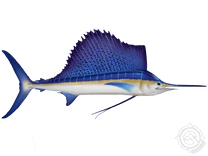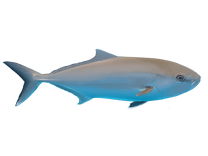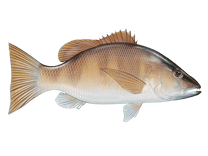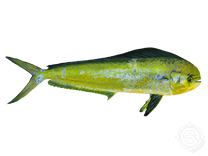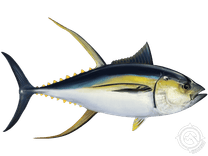Fort Pierce Fish Species
Fish Season Calendar
January
February
March
April
May
June
July
August
September
October
November
December
Discover the Seasonality of Top Fish Species in Fort Pierce, FL
Fort Pierce, FL is a prime fishing destination, with year-round opportunities to catch a variety of species. However, understanding the seasonality of these fish can help you plan the best time for your fishing adventure. From the abundant inshore species to the thrilling offshore catches, Fort Pierce offers something for every angler. Whether you're targeting redfish, snook, or grouper, knowing the seasonal patterns of these fish species will ensure a productive and enjoyable experience on the water.
Inshore Fish Species and Their Seasonal Patterns in Fort Pierce
Inshore fishing in Fort Pierce is popular year-round, but the best times to target species like redfish, snook, and trout vary by season. During the cooler months, from November to February, redfish and snook are abundant in the shallow waters of the Indian River Lagoon and the surrounding estuaries. Spring and summer (March through August) bring an influx of larger snook and trout, especially near mangrove lines and oyster bars. These species thrive in warmer waters, offering exciting opportunities for anglers looking to land prized catches. Additionally, anglers can find tarpon migrating through Fort Pierce waters from April to July, making it a prime time for trophy catches.
Offshore Fish Species and the Best Times to Catch Them
Offshore fishing in Fort Pierce is renowned for its diverse and abundant species. Peak fishing times for offshore species such as mahi-mahi, kingfish, and grouper vary throughout the year. The best time to catch mahi-mahi is from late spring through summer (April to August) when the waters warm up and these fish are abundant near floating debris or weed lines. Kingfish, which are plentiful in Fort Pierce's offshore waters, are most active during the cooler months of fall and winter (September to February). Grouper fishing is particularly successful during the winter months when these bottom-dwelling fish move closer to the reefs. For anglers targeting these exciting offshore species, understanding the seasonality is crucial for ensuring a successful fishing trip.
Common Questions:
What types of fish can we catch on an inshore fishing trip?
Inshore fishing in Fort Pierce offers a chance to catch species like redfish, snook, sea trout, and tarpon, depending on the season.
Which species are most common in offshore fishing?
Offshore fishing in Fort Pierce commonly targets grouper, snapper, kingfish, and sailfish, offering an exciting deep-sea experience.
When is the best time to fish for snook in Fort Pierce?
The best time to fish for snook in Fort Pierce is during the warmer months, particularly from late spring through early fall.
What is the peak season for catching sailfish?
The peak season for catching sailfish in Fort Pierce is typically in the winter months, from November through February.
Are there any shark species we can target on our trip?
Yes, shark fishing is popular in Fort Pierce, with species like bull sharks, blacktip sharks, and hammerheads often targeted.
What bait is commonly used for catching grouper?
Live bait, such as pinfish and grunts, is commonly used for catching grouper in the deeper waters off Fort Pierce.
Can we catch tarpon year-round in Fort Pierce?
Tarpon are most abundant during the warmer months, especially in late spring and early summer, but can be caught year-round.
What are the best conditions for catching redfish?
Redfish in Fort Pierce are often caught in shallow waters, with the best conditions being calm, clear water and early morning or late afternoon.
Is it possible to catch mahi-mahi in Fort Pierce?
Yes, mahi-mahi are often caught during offshore trips, particularly in the summer months when they migrate closer to shore.
What is the size limit for keeping snapper in Fort Pierce?
The size limit for keeping snapper varies by species, with most regulations requiring a minimum size of 10 to 16 inches for legal catch.
%2Ffit-in%2F250x250%2Fguide_websites%2F6660%2Fimages%2Ftemp_logos_sheet__1_-removebg-preview.png&w=1200&q=100)
